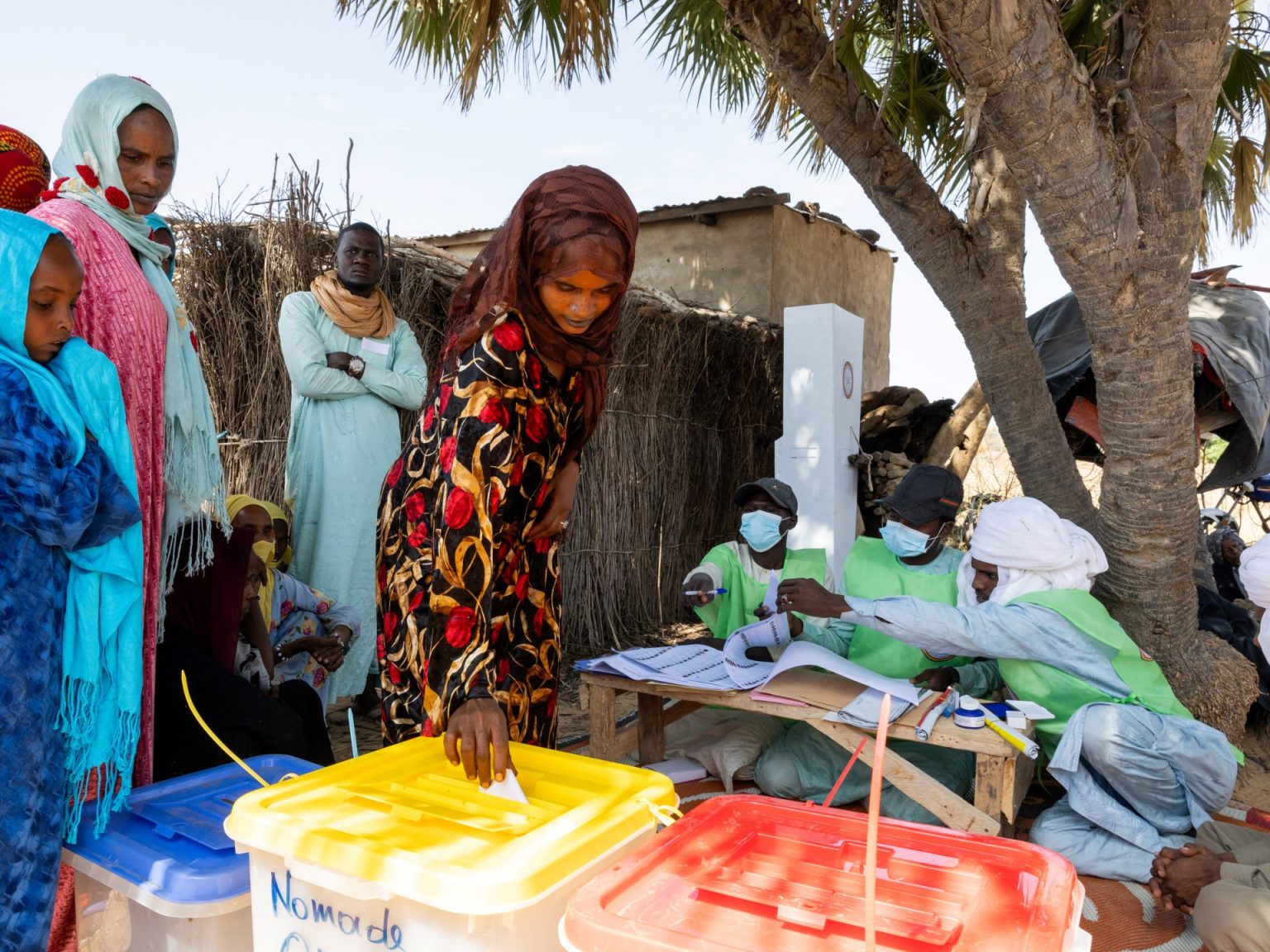Voting has begun in general elections in Chad, with President Mahamat Idriss Deby Itno claiming it as a key step towards democracy. However, opposition parties are calling for a boycott, labeling the elections as a sham aimed at solidifying the power of the ruling party. Members of the armed forces and nomadic tribes were summoned to vote on Saturday for logistical reasons, while the majority of the population will cast their votes on Sunday to select the national parliament, regional assemblies, and local councils.
Despite the opposition’s call for a boycott, initial estimates indicate that around 45% of the country’s nomadic tribespeople and military personnel have already voted by midday on Saturday. Reports from polling stations suggest that voting is proceeding normally, with observers stating that military personnel are voting freely. The opposition parties have urged citizens to stay at home and boycott the vote, citing concerns over the credibility and fairness of the electoral process.
The elections are taking place amidst ongoing security challenges in the region, including attacks by rebel groups like Boko Haram in the Lake Chad region. Chad recently ended a military agreement with France, its former colonial power, and has faced accusations of interference in the conflict in neighboring Sudan. President Deby’s government is presenting the elections as a crucial step in the transition to democratic rule, following his ascension to power in 2021 after the death of his father who ruled the country for three decades.
Analysts have raised concerns about the electoral process, citing the dominance of individuals loyal to the ruling party in the electoral management body. The lack of international observers and an opaque voting-counting process further fuel distrust in the electoral system. The opposition boycott reflects a widespread belief that the elections are not free or fair, casting doubt on Chad’s democratic prospects. The last legislative elections were held in 2011, and the opposition has previously denounced the presidential vote in May as fraudulent.
For many Chadians, the upcoming elections are met with indifference, as they doubt any significant changes will result. Bread-and-butter issues such as high cost of living, corruption, and nepotism are the main concerns for citizens. The ruling party is expected to maintain power, according to the prevailing sentiment among the population. As voting continues over the weekend, the outcome is likely to be contested and seen as favoring the governing party. Despite opposition calls for a boycott, the electoral process is moving forward, raising concerns about the credibility and fairness of the results.













